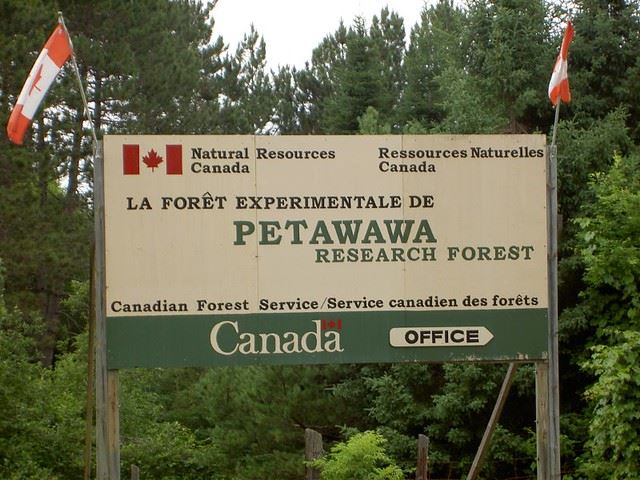 Petawawa Research Forest sign. Credit: Jason Spaceman/Flickr
Petawawa Research Forest sign. Credit: Jason Spaceman/Flickr
Periodically, SWCC student members create media monitoring posts to let members know some of the Canadian science news happening lately. Here are six recent stories to consider.
Summary: Researchers at the Norwegian Polar Institute were left awestruck at data provided by a female arctic fox that travelled from Norway to Canada in just 76 days. According to researchers, the fox travelled roughly 2000 miles to get to its destination on Ellesmere Island. This number represents the fastest journey of this length ever recorded in this species of fox.
Summary: As one of the best countries in the world, Canada excels in several areas, especially in the field of science. The “Super Awesome Science Show” podcast features an interesting segment with special guest, the Honorable Kirsty Duncan, Canada’s Minister of Science and Sport. This podcast explores her past achievements as a researcher, as well as the impact she is currently making in the political realm.
Summary: As climate change issues continue to grow, new methods must be developed to ensure that Canada’s forests can survive in extreme weather conditions in the future. A long-term research study is expected to take place in the Petawawa Research Forest. This study will aid Canada’s foresters in developing new methods that will help the forest to adapt to changing climate conditions.
Summary: Today, it is vital that we work towards breaking down the boundaries between genders. A STEM (Science, Technology, Engineering and Math) camp took place earlier this week, with the goal of inspiring young girls to pursue future careers in science and technology. The camp organizers further encouraged young girls with the help of Astronaut Barbie, by “launching” her from Fanshawe College and into space.
Summary: The decisions we make today, will inevitably impact the youth of tomorrow. As a result, it is only natural that they should become more involved in today’s decision-making processes. Especially when it comes to scientific research and governance. It is for this reason why Canada’s Chief Science Advisor, Mona Nemer, will be working alongside a youth advisory council composed of about 20 members with diverse backgrounds.
Summary: The impact of climate change poses a big risk risk to coastal and northern communities, as well as to our infrastructures, ecosystems, and health. It is now more important than ever for Canadians to come up with solutions to get ahead of this problem. However, one of the biggest challenges is finding ways to get Canadians to pay for these new solutions.
By: Mathew Guida

Biography: As a native Montrealer, I graduated from Concordia University with a BA in Anthropology and a minor in Film Studies. I am currently studying for my master’s degree in Journalism at Carleton University in Ottawa.
My interest in journalism began while attending Concordia. I was a frequent contributor to the university’s independent newspaper, The Concordian. I further honed my skills and experience by working as a List Writer for the entertainment news website Screen Rant.
Since I started attending Carleton University, I have strived to further improve my skills as a journalist in not only print, but also in the fields of data, investigative and broadcast journalism. In the past year, I have also developed a growing appreciation for radio journalism and podcasts.
My current interests lie in studying the future of the journalism industry, writing and researching pop culture and social media trends, as well as furthering my career in the field of journalism.
